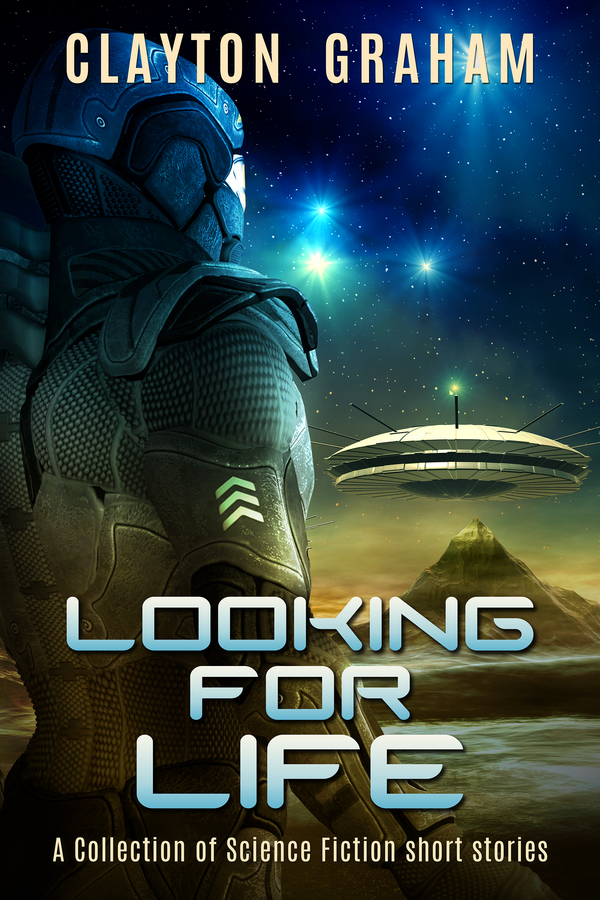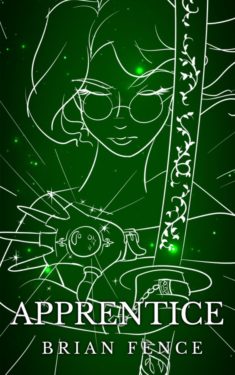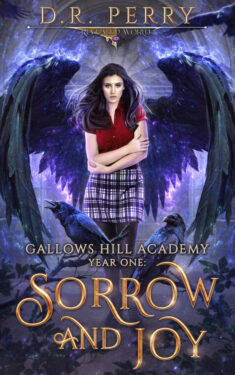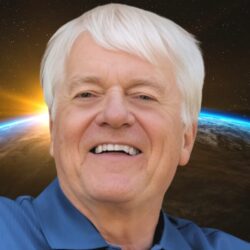A Collection of Science Fiction Short Stories
by

Strap in, turn down the lights, and enter worlds that will stretch your imagination to the full…
From the multi-award-winning author of the First Contact Series, Milijun, Saving Paludis, Silently in the Night, and Those Alien Skies comes a spellbinding collection of short stories that promises hours of captivating entertainment.
Experience tales ranging from a stranded alien comedian to the darkest corners of the human mind; from breathtaking galactic adventures to hidden extraterrestrial schemes on Earth. Each story is crafted to keep you guessing and enthralled at every turn.
2022 IAN Book of the Year Award: Short Story Collection - Finalist
2022 Incipere Book Awards - First Place
2022 Global Book Awards - Gold Winner
2021 Readers' Favorite - Finalist
2021 Literary Titan Gold Book Award
2021 Top Shelf Award - First Place
2021 Authors Shout Top Pick
★★★★★ "The writing style employed by Graham is unique and powerful. His wording is beautiful and well-crafted, making the act of slipping into the worlds that he creates an easy task. The characters, situations, and places are all created with care and depth. I loved the style of this author."
★★★★★ “Looking for Life is a spine-tingling, thrilling compilation of stories you mustn’t miss."
★★★★★ “Clayton’s way with words and his descriptions of both place and characters in distant and strange encounters and worlds are painted with elegance and authority. He leaves us with not a ‘what if’ attitude, but with a ‘when?’ and that is the essence of a fine science fiction author.”
★★★★★ “I fell in love with the book from the very first story. The plots varying from dark conspiracies to direct threats keep high suspense in all stories.”
With tales of alien invasion, deep space mystery, time travel, and dystopian future Earths, this is a collection which takes inspiration from the much respected ‘old masters’ of Science Fiction.
Editors:
Cover Artists:
Narrators:
Genres:
Tropes: Abandoned Place, Alien Invasion, Benevolent Aliens, Born Hero, Clones, First Contact, Galactic Civilization, Interstellar Travel
Word Count: 69500
Setting: Universal
Languages Available: English
Tropes: Abandoned Place, Alien Invasion, Benevolent Aliens, Born Hero, Clones, First Contact, Galactic Civilization, Interstellar Travel
Word Count: 69500
Setting: Universal
Languages Available: English
Confusion reigned for several seconds, ably reinforced by a dull ache inside his skull that seemed to ricochet in slow motion from ear to ear. He swivelled his eyes and surveyed the interior of his enclosure, pausing here and there to review an unfamiliar object. Where the hell was he? And why did he feel like crap?
As his eyes turned, there was a whirring sound; when they stopped—silence.
Charles Edgar Fantom, he thought, retired astronaut of distinction.
He shook his head. He had asked where he was, not who he was. He felt dopey, drugged. A hint of fear threatened rational thought.
Recovering from an operation? The room was white, brightly lit. It could be a theatre. But there were twinkling lights all around him, as if he had been thrown into the middle of a star field.
Far-flung Fantom they had called him, with Saturn, Neptune, and Pluto safely tucked under his belt. An astronaut, yes, but where am I now?
READ MOREHe raised his eyes to the ceiling and once again heard the whirring sound. Should he try to stand? The room was becoming clearer as he gradually adjusted to the various depths of field, and he felt an abrupt urge to explore. Old habits die hard.
He decided to stand but found he couldn’t. Nothing happened. He tried to call out; no sound found its way to his ears.
Fantom’s eyes turned, and he caught his reflection in a shiny console. A sinister numbness seized his mind, but there was no nerve-tingling shock. But hell, there should have been! The reflection did not show a human face, but the unemotional features of a robotic head.
Two large lenses stared back at him. A rectangular mouth used for God knows what sat beneath the artificial eyes. He glanced at his body, finding nothing but a black metallic box, the underside of which was hidden from view.
He wanted to scream, but he had nothing to scream with.
A screen suddenly lit up in front of him, and he found a morsel of relief as he realised he could read the words:
Hello Charles
This is your LFL computer
Glad to see you have awoken safely
Fantom watched, his robotic eyes slightly glazed, his mind still cold and blank. Was he dead or in a living hell—or was he perhaps dreaming? He tried to pinch himself, but, of course, he failed.
The screen went blank, and then more words came into focus:
Please watch carefully
On July 17 2231
You, Charles Edgar Fantom, passed from Earth’s life
There! He had it. He was dead. Yet here he was actually watching and thinking. Or maybe he was a computer aligned to the thoughts of the late version of himself.
Your brain was saved and linked to the prototype of the machine you now inhabit
Fantom mentally wiped his brow. So he was alive after all.
The year is now 2381, and you are in deep space
You have been in effective suspended animation inside this spacecraft
Fantom blinked, the process itself just a surge of electrons. Unbelievable! Far-flung was not the word. For the past 150 years, he had been dead to the universe!
The screen blinked out again for several seconds, as if giving him time to digest the enormity of his situation.
In five seconds, your body will receive full power
5, 4, 3, 2, 1—
Fantom braced for the shock but was surprised to encounter only a slight tingle in the bodily zones below his head.
You are now on full capability
You can move, talk, smell, and hear and have two operational hands
He automatically glanced downwards. The screen flickered.
You are capable of withstanding intense extremes
Both pressure and temperature
You are now ready for your mission
Mission! Here comes the catch, he thought. He ordered his brain to extend his right arm, watching in fascination as a jointed cylindrical tube—attached to which was a beautiful replica of a human hand—came into view. He waggled the fingers playfully.
“When you are ready.”
He actually heard the words this time, gobbled up by his electronic ears.
“Here begins your mission.”
The screen was abruptly filled by the head and shoulders of a man. He was tanned with short grey hair, strong blue eyes, and an aquiline nose. The face was full, set above a large square jaw, and it carried a look of determination.
“You don’t know me, Charlie, but I sure know you. You must be the oldest human alive.” Fantom stared at the screen, totally intrigued. The face broke into a grin. “Let me introduce myself. My name’s Jamie Alexander, and I’m the head of the World Federation for Space Exploration and Utilisation.
“You, Charlie, as you will recall, have a unique record in space, and that is why you were chosen in 2231 to undertake this mission.” The face grew serious. “Your assignment is to bring life back from another world. Nothing big, just life forms your new body can carry. Please note you have no weapons. It is not that kind of mission.
“No human body could live long enough to complete this mission, yet alone withstand the traumas of space. So you have a new body, Charlie.” The face creased into a grin. “And you get a bonus—one hell of an extended life.”
“What happened to my old body?” A fair question, Fantom thought, considering the circumstances.
“You wish to know?”
The recording was obviously primed to recognise possible questions. “Yes, I bloody well do.”
The screen lit up and showed a death certificate: his death certificate. He saw his name, the date, and the cause—automobile accident. He had to laugh. After all those years in space, he had met his end in a car crash.
But now he had a new body, apparently supremely equipped for life among the stars. He required neither food nor water and was totally self-reliant.
The image of Jamie Alexander filled the screen again.
“Now Charlie,” Alexander said, “you may wonder why you have been awoken at this particular point in time. I don’t know when it is—it could be a hundred or a thousand years from when I made this recording. Little matter. Your on-board Looking For Life computer is keeping Earth time.”
Fantom decided to answer. “It’s plus 150 years.”
Predictably, the image before him never flinched.
“The fact is, your ship has detected life on a nearby planet. And you are now zeroing in on that life. Everything has been automated.” Alexander leaned further into the screen. “But once you hit that planet, Charlie, you are in charge. You go out there and explore, and capture something living for us.”
Alexander’s face relaxed. “So that’s it, Charlie. By the time you hear this, I will be long gone. One word of warning, though. Your ship takes off exactly three months after landing, no matter what, and retraces its way back to Earth. Make sure you are on board. If you want to leave earlier, that’s fine—but definitely no later.” The image on the screen gave a small wave. “Best of luck, Charlie.”
The screen went blank, then lit up again.
“End recording. For time to life, press button one two.”
Fantom’s right arm shifted, and he pressed the appropriate button with his robotic index finger.
“Time to life: one week, two days, two hours, three minutes, five seconds. There is a spacecraft manual in locker A. Advise study.”
Do you indeed, Fantom mused. He commanded his body to move towards the series of lockers located against the right wall of the cabin. The movement was smooth and effortless, like the glide of a swan. He found locker A readily enough and, opening it carefully, took out the manual.
For days on end, he read and re-read the instructions.
There was a layout of the ship that located the computer control complex, the nuclear motors, the energy cells, and the specially quarantined hibernation headquarters for extraterrestrial life of any shape or form. There were also hints on how to capture live animals.
Fantom’s excitement grew. He felt like a big-game hunter about to explore a dark and unknown continent, with the additional advantage of possessing an invincible body.
He found the control for the external cameras and for the first time saw his target. With only a few days to go, it took up a good portion of the screen.
His dexterous fingers typed a series of questions to the central computer, and the console screen lit up with information:
Diameter: ten thousand kilometres
No moons of any significance (whatever that meant)
A day of 28.13 Earth hours
Not unlike Earth, Fantom mused. That was good.
He glanced at the camera screen again. The planet had a greenish hue with dark brown patches at both poles. Grey, fluffy patches were prominent around the equator, presumably clouds of some kind, but not necessarily water.
It wasn’t until the penultimate day that Fantom started to think seriously about his mission. What kind of life could he expect to find on the planet? Was he supposed to capture anything dangerous? How the hell was he going to go about it?
For the first time he felt unhappy about his situation. He also felt tired, suddenly realising he had gone several days without sleeping. Do I sleep? Or am I too much of a machine? His body may not need sleep, but his mind most certainly did.
He pressed button one two.
“Time to life: one day, two hours, forty three minutes, seventeen seconds.” Even the ship’s voice was starting to sound weary.
“I’m going to sleep,” Fantom announced. “Wake me up when I need to wake up.” He didn’t want to see the approach of the planet; he had seen enough of those. He just wanted to be on its surface.
COLLAPSE
Readers' Favorite on Amazon wrote:★★★★★ "With an elegant, yet exhilarating writing style Clayton Graham has cleverly created a superlative collection of original stories each with twists, turns and surprises. Each story is woven together magnificently. Every meaningful word held me fully engaged while each short story held special depth to the characters allowing me to have an amazing feeling of warmth and a deep connection to them. His descriptive writing style transports readers to shocking otherworldly lands which declares the author's strong world building skill. Then, to provide readers with satisfying and thought-provoking conclusions to each and every one of his stories is truly fascinating and displays the brilliance of his overall creativity, intelligence and outstanding writing ability.
Looking for Life by Clayton Graham is the very best collection of short stories in the science fiction genre that I have ever read. In fact, I would prefer it over a full on science fiction novel. Graham has the incredible talent, creativity and smarts to take readers from one extraordinary, staggering, unbelievable and entertaining story that satisfies the soul - to the next!! Truly amazing!!"
Literary Titan on Amazon wrote:★★★★★ "Purists often prefer the original designation, science fiction, for books like Looking for Life by Clayton Graham, but the less definitive, more contemporary label, speculative fiction, best describes the wonderfully engaging work proffered herein. The very best creations in this unique genre, no matter the designation, occupy themselves with the psychology of 'human being' rather than the accoutrements of war, technical toy-making, or scientific theory. While these highly intriguing elements of necessity clothe most imaginative stories of speculative fiction, the spirit of great science fiction is best found when exploring the foundation of life itself, whether alien or human, robotic or organic.
This means telling living stories and in this glorious genre telling them with a twist.
Clayton Graham tells living stories and in his latest collection, Looking for Life, once again he tells them with a twist. Like the special secret friend of one little boy, the friend perceived as one floppy rabbit, calling down from space. Or like the alien animal collected to repopulate Earth's barren devastation due to mass extinction, who turns out to be not just intelligent, but 'chosen'. Or like the fellow member of a spaceship crew who lets himself be adopted by a planet, only to find himself repopulating the world with others who will certainly drive him mad. These are all stories of hypnotic speculation dressed in easily discarded clothing, provided only for some context amidst eager speculation while the reader tries to guess what might be coming next. Most often, 'next' comes with a delightful twist. Something to make the reader sigh, then remember why it is he loves science fiction."
★★★★★ "Looking for Life by Clayton Graham is an enthralling collection of science fiction short stories. They're fast-paced adventurous intergalactic romps that are by turn, nail-biting and hilarious. Without giving too much away, my favorites definitely included the title tale and somewhat doom-filled (in the best way!) "Looking for Life" and the oddly philosophical "The Comedian" Nearly all of the seventeen stories have a twist at the end that was either thought-provoking or made me laugh.
Clayton Graham has a wonderful way of storytelling: he's not a wax-lyrical author. He writes in a manner that is concise and gripping without giving too much away. And even though there is very little slow-burn element to the stories, he manages to structure the dialogue and action in such a way that it's hard to put down any of the stories. The characters are limited by their own flaws and very realistic- making them oddly endearing. Surprisingly enough, even the plots are realistic- which is a commendable feat for any science fiction story. I suppose this is a combination of the author's prowess and the way the stories depict alien life rooted in the same everyday realities as human life.I'd recommend this to not only science-fiction fans, but also anyone who enjoys a solid action-adventure romp. It's a fun ride that kept me entertained without asking too much of my time and keeping all of my attention."






